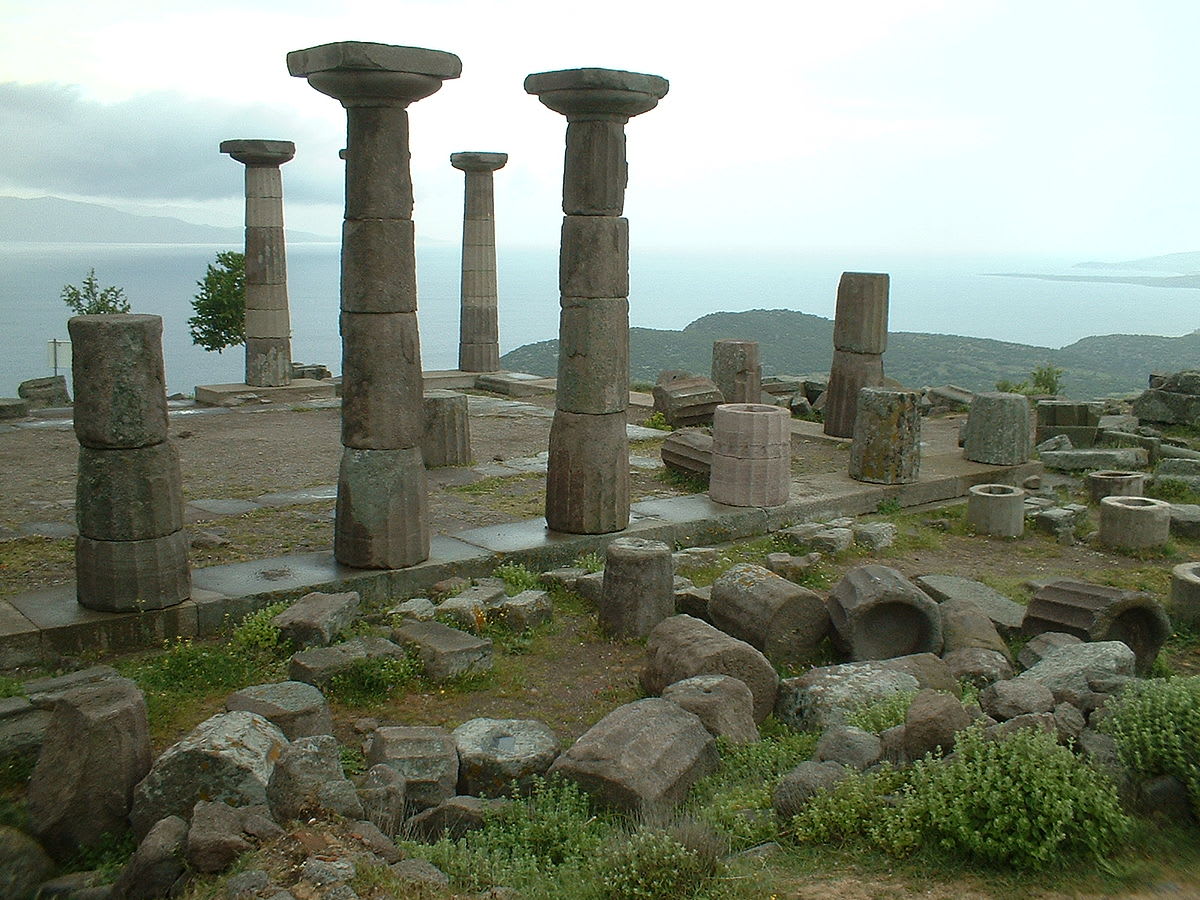Discovery of One-of-a-kind Family Tomb with 2200-Yr-Old Floral Mosaic Discovered in Turkey, Intrigues Researchers

For a long time, Assos in Turkey has been surprising archeologists with one after another intriguing finds. Two more joined the ever-growing list recently, stated Daily Sabah. These discoveries happened during the 44th season of excavations supported by the Ministry of Culture and Tourism and sponsored by Istanbul Steel and Iron Industries Inc. (ICDAS).

| Photo by Gregorof )
The findings were located at Behramkale village in Türkiye’s Canakkale province. The team spotted what they believed to be a 2,200-year-old mosaic and a 1,800-year-old monumental tomb during the excavations. The mosaic dates back to the Hellenistic period, as per examinations. It was made out of several colorful polygonal stones, which were all arranged in geometric and floral patterns. "Based on our current estimates, the newly discovered mosaic in Assos is 2,200 years old. Therefore, we can say that it is one of the first mosaics from the Hellenistic period in Anatolia featuring polygonal tesserae [stone, glass, or marble pieces used in mosaics to enhance visual effect]. This structure was likely used as a gymnasium during the Hellenistic period but later transformed into a residential area in the Byzantine period," added Nurettin Arslan, head of the Assos excavation team and a faculty member at Canakkale Onsekiz Mart University, stated Arkeonews.
Despite the passage of around two millennia, the mosaic exhibited many of its original features, stated The Jerusalem Post. This surprised researchers associated with the excavation. "The fact that the mosaics have reached today without any damage is actually a great fortune," Arslan added. Similar mosaics have been located in the cities of Macedonia and Greece.
View this post on Instagram
The tomb was placed in the eastern section of the site. The features of the tomb indicated that it was a 'heroön,' Daily Sabah stated. A heroon is a monumental burial place that houses the bodies of a particular family. Researchers believe the family to whom this heroön must have belonged was possibly a prominent family in Roman-era Assos. Initially, experts thought the structure was an ancient fountain, however, explorations revealed its true identity. During the excavation season, several other findings also came to light in the ancient city and its acropolis, stated Arkeonews. One of these discoveries is a structure they believe to have been sort of an inn in the past. The construction is adjacent to the western city wall.

Assos was an important port city throughout the past ages, stated Daily Sabah. Therefore, archaeologists for decades have been focussed on the area, and have excavated several valuable finds giving a glimpse of past times. Turkish experts have been conducting excavation work in the region since 1981, stated The Jerusalem Post. This project followed initial excavations that happened somewhere between 1881 and 1883. The city is located on a volcanic hill, just opposite to the island of Lesbos. The city is renowned for well-preserved ruins of several prominent buildings like the Temple of Athena from the 6th century B.C. The region was also a center for philosophy in the past, attracting the presence of popular figures like Aristotle. The place's heritage continues to draw a large number of tourists every year.